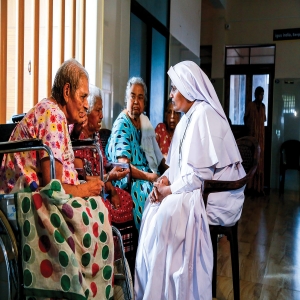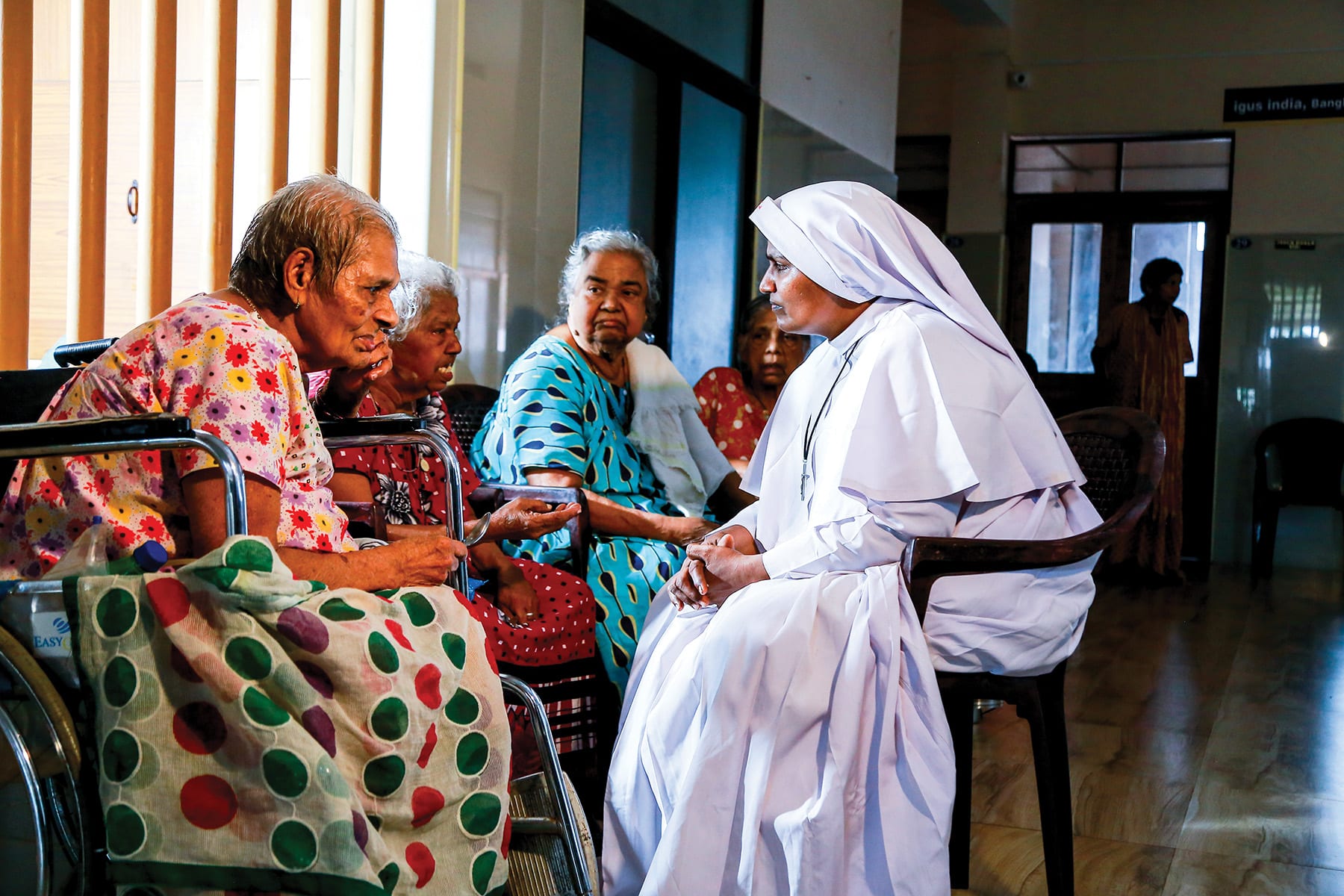

As children, we held a complicated view of the nuns who taught us in the village school — a blend of fear, distance, and even casual dislike, a sentiment that transcended our varied backgrounds. Yet, even then, a seed of profound respect took root in me, a respect that endures, unbroken.
It was the back route to the chapel—a shortcut through the elderly men's sleeping quarters—that peeled back the curtain on a reality no one ever spoke of. From the tender age of five, this path became my routine, and walking softly between the rows of beds, amidst those who slept, pretended to sleep, or simply lay waiting for the dawn, I often witnessed the Sisters of the Destitute (Chunangamvely, Aluva, Kerala) at work.
In the faint light of the early hours, I saw these young nuns, barely more than girls themselves, dedicated to the most humbling tasks: helping the ailing, sometimes uncooperative men relieve themselves. At that tender age, my mind simply could not grasp the source of such willingness.
Even now, decades later, the question echoes in my heart: Would even one's own children perform such duties with this consistency and quiet grace?
The scene was visceral; no girl, witnessing that sheer physical burden, would ever dream of becoming a nun. Yet, as I searched their faces for a flicker of disgust, a trace of anger, or the slightest hint of impatience, I found nothing.
What shone back at me was an astonishing gentleness and a radiant, steady peacefulness. When they looked up and offered a tired, genuine smile, I frankly used to wonder if I had just seen the smile of an angel. That is the honest truth.
One day, the first Friday of the month, the truth of their sacrifice was laid bare. I walked through the hall, my spirit quieted by the early Mass. In that large, silent space, three or four Sisters were deeply engaged—changing soiled sheets, cleaning the specialised beds of those who couldn't move, removing the heavy vessels that collected human waste.
As I passed one nun, reaching low beneath a bed, I heard a terrible, visceral thud and instantly spun around. I froze, utterly stunned, fixed to the spot like a stone pillar. Whether driven by sudden, uncontrollable pain, deep mental distress, or some profound, festering animosity, one of the elderly men had struggled up from his adjacent bed. In a malicious flash, he seized the waste bucket from the nun's hand and hurled its vile contents directly at her.
The Sister stood motionless, frozen by the act. But as I looked into her eyes, which were wet but still open, I saw not shock or despair, but the very eyes of Christ—filled with limitless, heartbreaking compassion. Other nuns rushed forward, not with anger, but to prevent the situation from escalating.
These women, often mocked by cruel nicknames, are the silent guardians of human dignity, offering a service so precious it defies measure—caring for the abandoned, the sick, and the helpless. When will we truly acknowledge the incalculable value of such a contribution to humanity? Even today, they endure scorn and baseless ridicule. In a way, they are like Christ, perpetually being offered up again and again.
These unsung heroes—men and women whose commitment transcends any desire for praise, influence, or power—continue to appear across every generation, driven by the core message of love. It is this persistent, embodied love that allows the message of Christ's compassion to endure, despite the relentless, cynical assaults—from within and without, launched by tongues, pens, and every weapon imaginable.
The actions witnessed in that hall are too pure, too humbling to ignite the base, dormant emotions that fuel petty debates. They will never make it to the hollow prime-time broadcasts. It is easier for those who traffic in hate, black money, and hollow promises to dismiss a lifetime of devotion by claiming that those who embrace Christ's message are merely people who "changed religion for free medicine and milk powder." Such a claim is nothing more than projecting one's own depravity onto the innocent.
But the divine truth of "tat tvam asi" (You are that—the divine) finds its home not in gilded temples, but in the raw, rural landscapes—where the stench of human waste hangs heavy, where flies buzz thick, and where villagers, half-blinded and suffering, still rush forward to us with a genuine smile.
If the world could see the human face of this selfless dedication, if those who echo their own customs in faith could become messengers of humanity, compassion, and brotherhood with even a fraction of that spirit, the false claims of forced conversion would surely fade into irrelevance.
For in the end, doesn't every single human being, without exception, simply yearn for a life lived with dignity, respect, and unconditional love?